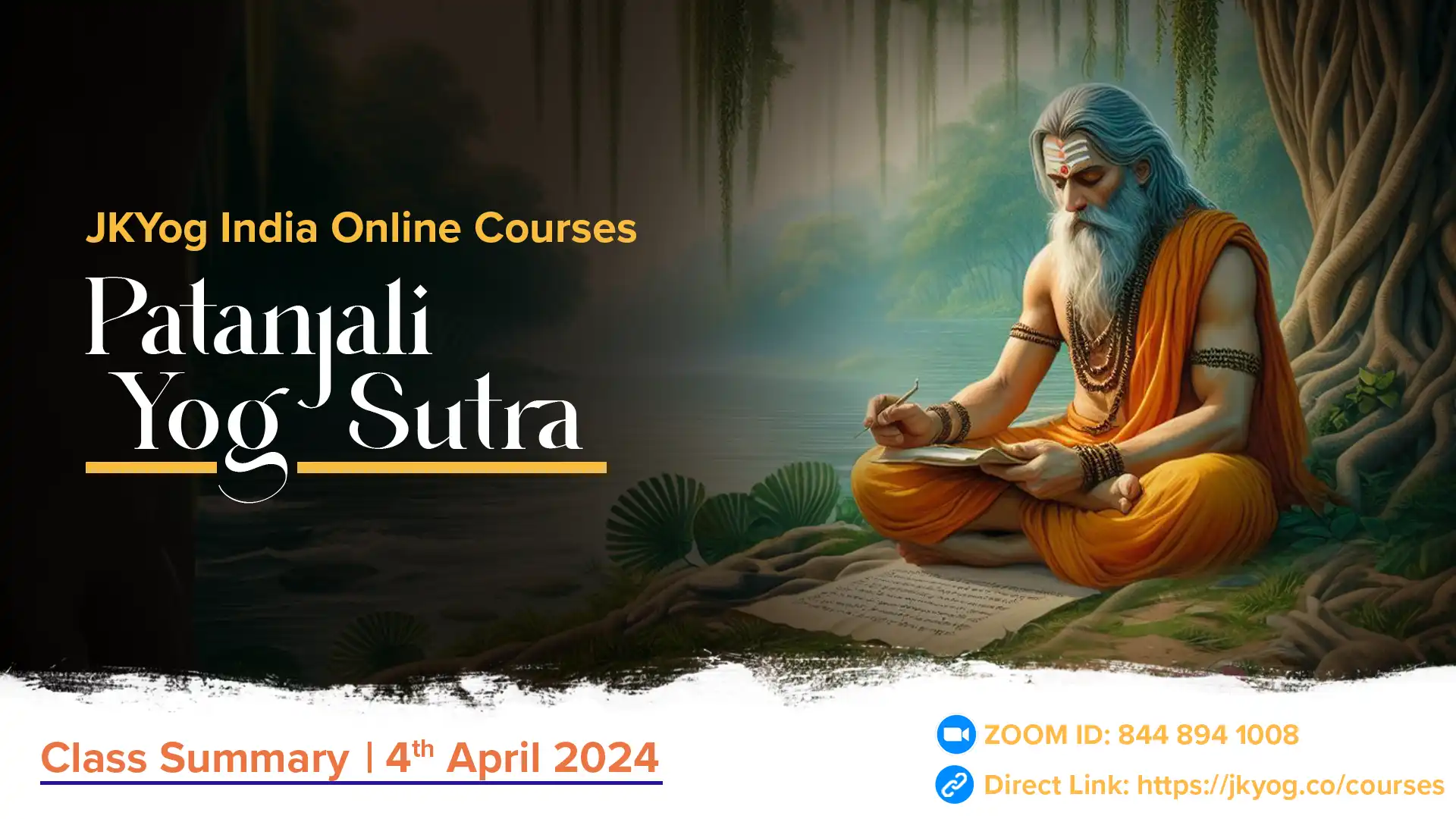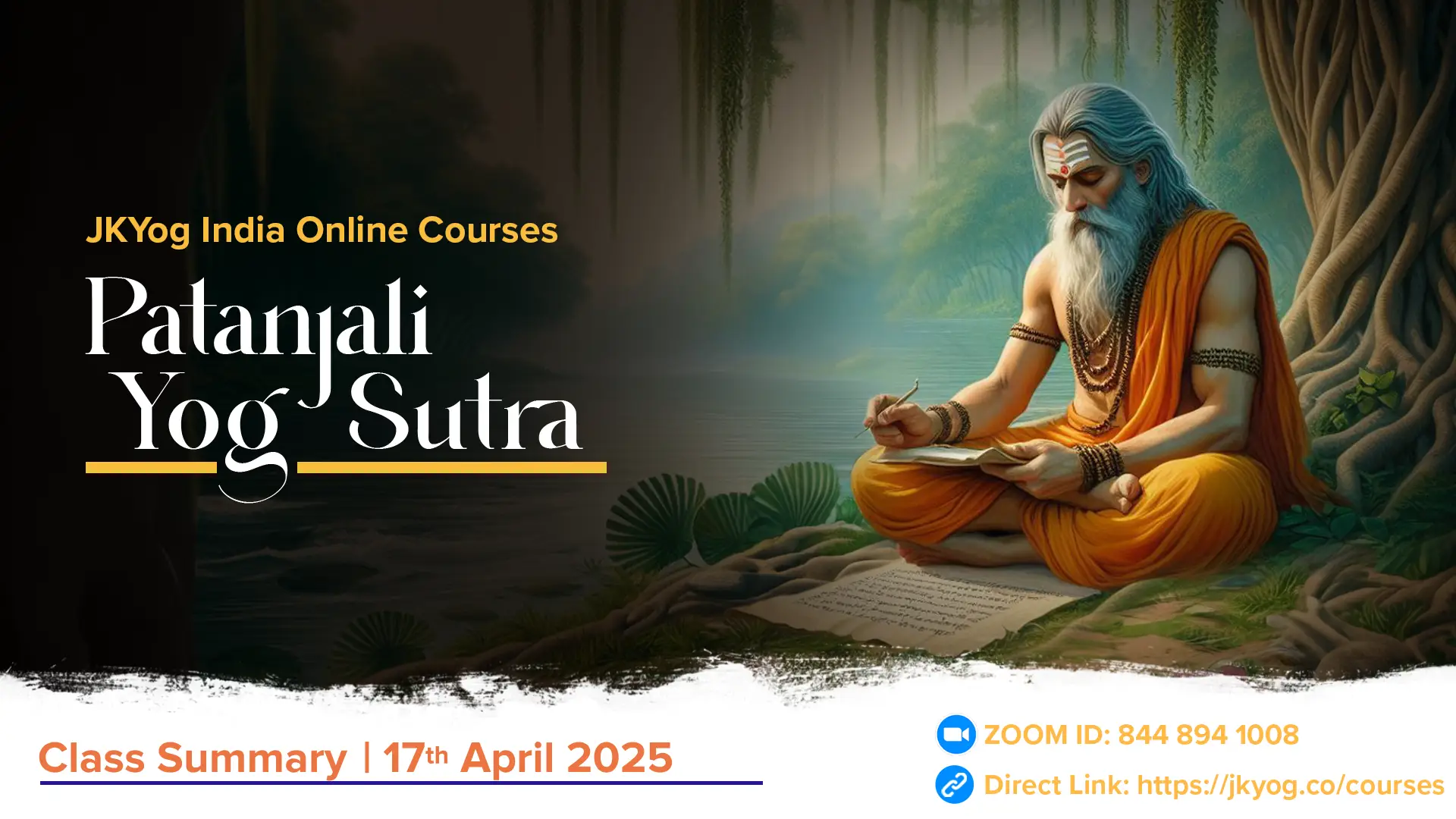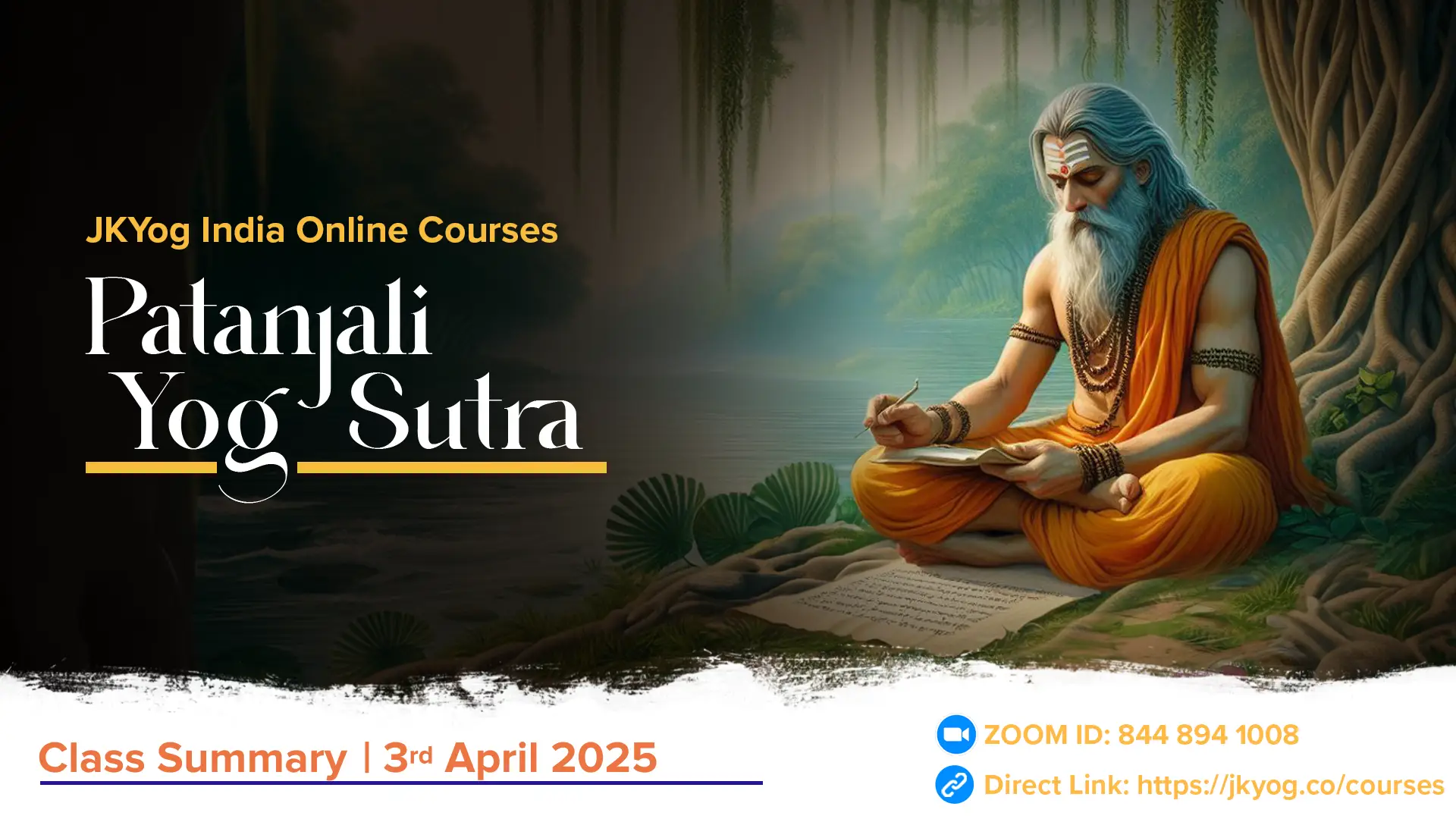शौचसंतोषतपःस्वाध्यायेश्वरप्रणिधानानि नियमाः
śauca-santoṣa-tapaḥ-svādhyāya-īśvarapraṇidhānāni niyamāḥ
(Patanjali Yoga Sutra 2.32)
Translation: Internal and external purification, contentment, austerity, self-study and devotion to God - are the Niyamas.
While the Yama speak of specific practices to be avoided, Niyama tells us about those to be observed. Some rules or principles that can help our spiritual progress are discussed below.
Fearlessness: It is the state of freedom from concern for present and future miseries. Inordinate attachment of any kind causes fear. Detachment and surrender to God vanquish all fear from the heart.
While the Yama speak of specific practices to be avoided, Niyama tells us about those to be observed. Some rules or principles that can help our spiritual progress are discussed below.
Fearlessness: It is the state of freedom from concern for present and future miseries. Inordinate attachment of any kind causes fear. Detachment and surrender to God vanquish all fear from the heart.
Purity of mind: When our thoughts are ethical, wholesome, positive, and uplifting, the mind is considered pure, and when they are unethical and degrading, the mind is considered impure. Attachment to God purifies the mind.
Steadfastness in spiritual knowledge: The path of virtue is forged by remaining steadfast in the awareness of spiritual principles.
Steadfastness in spiritual knowledge: The path of virtue is forged by remaining steadfast in the awareness of spiritual principles.
Charity: Giving away one’s possessions for a good cause or to needy persons. Material charity, done for the welfare of the body, helps others temporarily. Spiritual charity, done at the platform of the soul, helps eliminate the cause of all suffering, which is separation from God. Consequently, it is considered higher than material charity.
Control of the senses: The senses tempt the living being to seek immediate gratification. However, walking the path of virtue requires forsaking the lower sensual pleasures to achieve a higher goal. Restraint of the senses is essential for treading the path to God.
Performance of sacrifice: Executing one’s Vedic duties and social obligations, even though they may not be enjoyable. Sacrifice is considered perfect when it is done for the pleasure of God.
Study of the sacred books: Feed the intellect with uplifting knowledge from the scriptures. When the intellect is illumined with proper knowledge, one’s actions naturally become sublime.
Austerity: Voluntary acceptance of hardships to purify the body, mind, and intellect.
Straightforwardness: Simplicity in speech and conduct declutters the mind and engenders the sprouting of noble thoughts.
Incorporating these Niyama into our lives can help us lead a more fulfilling and spiritually rich life, leading us towards the ultimate goal of liberation.
Summary: JKYog India Online Class- Patanjali Yoga Sutra [English]- 04.04.2024








